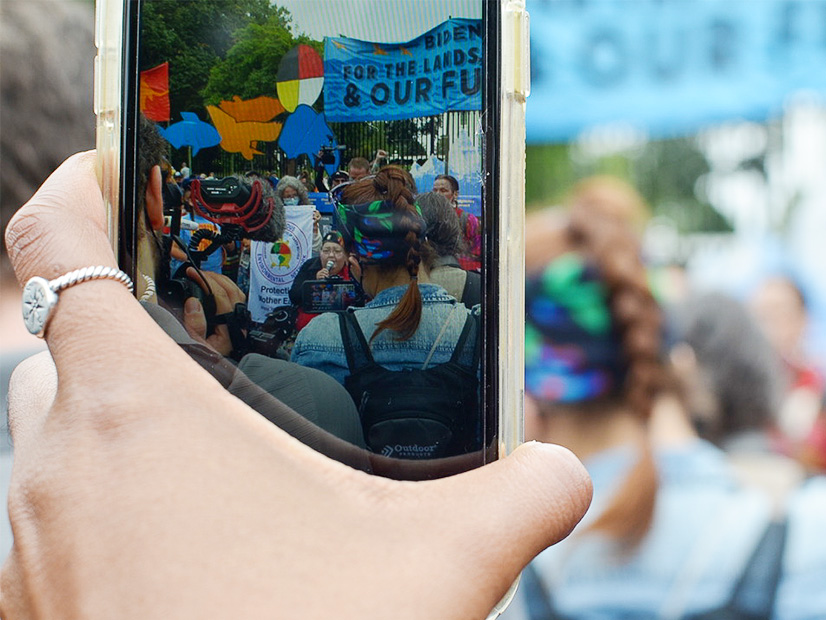
Women, especially Indigenous women, should have a bigger role in the 26th Conference of the Parties, as they are largely impacted by the global climate crisis but are overlooked in policy decision making, according to the feminist coalition Women’s Earth & Climate Action Network.
Osprey Orielle Lake, founder and executive director of the network, presented a call to action to the United Nations General Assembly on Tuesday, including demands to rapidly halt fossil fuel extraction and build on community-led renewable energy solutions.
Over 140 groups signed the call to action before Lake presented it during the U.N. General Assembly’s meeting “Delivering Climate Action: For People, Planet and Prosperity.”
The document asks government leaders and financial institutions to prioritize women’s leadership and equity by protecting the rights of Indigenous communities disproportionately impacted by climate change, but who can also lead solutions on the frontlines.
“We are not willing to die because of the insistence upon endless economic growth and extractive industries that particularly harm women and Indigenous, Black, Brown, island and global south peoples,” Lake said Tuesday at the assembly.
COP26 represents the opportunity to build a pathway to limiting global warming to 1.5 degrees Celsius. It is also an opportunity, Lake said, to do so in a way that helps the people worst affected to build resilience in their own communities.
The call to action highlights natural gas, nuclear power plants, hydroelectric dams, forest offsets, carbon trading and carbon capture and storage as “false solutions” that continue to displace Indigenous communities.
“It’s not ok to tell us we are being unreasonable with our demands for climate justice because we don’t understand what is possible in the political sphere, or the business or financial institutions,” Lake said to the assembly. “We will not allow for sacrifice people or sacrifice zones, corporate colonialism or incremental transitions to renewable energy.”
Role of Financial Institutions
The call to action outlines steps for financial institutions to pull investments from fossil fuel extraction and redirect those resources to solutions that are beneficial to Earth’s climate and environment.
Banks should require clients engaged in fossil fuel extraction to develop plans to phase out their fossil fuel operations to make a positive difference in a timeframe that aligns with the International Panel on Climate Change’s report on the impacts of global warming of 1.5 degrees C, according to the call to action.
In addition, it said that financial institutions should decline financing to companies that refuse to publish plans to do so.
The 60 largest commercial and investments banks collectively financed $3.8 trillion in fossil fuel companies between 2016 and 2020 after the Paris Agreement was signed, according to a report published in March by a collection of climate organizations titled Banking on Climate Chaos 2021.
“The real problem is not that we don’t have a plethora of solutions from agroecology to Indigenous knowledge, from regenerative energy to feminist economics and climate policies,” Lake said. “The problem is the insistent structural interference that those in power are exercising in response to people taking real action.”
